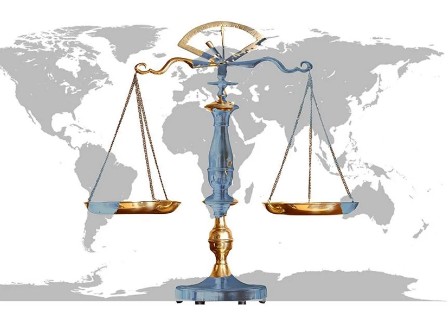Taiwan’s defence ministry said starting around dawn on Wednesday it had detected 36 Chinese military aircraft, including J-16 fighters and nuclear-capable H-6 bombers, flying to the south and southeast of the island heading to the Western Pacific to carry out drills with the Shandong. Speaking to reporters at parliament shortly before his ministry announced details of the latest mission by the Shandong, commissioned by China in 2019, Taiwan Defence Minister Wellington Koo said they had a “full grasp” of the ship’s movements.
Chinese aircraft carrier the Shandong passed close to the northern Philippines on its way to drills in the Pacific, Taiwan’s defence minister said on Wednesday, as Taipei reported dozens of warplanes joining the ship for exercises. The manoeuvring of the carrier through waters closer to the Philippines than to Taiwan comes during a period of rising tensions between Beijing and Manila over territorial disputes in the South China Sea.
Taiwan, which China claims as its own territory, keeps a close watch on all Chinese movements given the daily military activity around the island. Taiwan’s defence ministry said starting around dawn on Wednesday it had detected 36 Chinese military aircraft, including J-16 fighters and nuclear-capable H-6 bombers, flying to the south and southeast of the island heading to the Western Pacific to carry out drills with the Shandong.
Speaking to reporters at parliament shortly before his ministry announced details of the latest mission by the Shandong, commissioned by China in 2019, Taiwan Defence Minister Wellington Koo said they had a “full grasp” of the ship’s movements. “It did not pass through the Bashi Channel,” he said, referring to the waterway that separates Taiwan from the Philippines and is the usual route Chinese warships and warplanes take when they head into the Pacific.
“It went further south, through the Balintang Channel, to the Western Pacific,” Koo added, a waterway between the Philippines’ Batanes and Babuyan Islands. China’s defence ministry did not respond to a request for comment.
The Philippines military said it was concerned with the deployment of the Chinese carrier group. “We emphasise the importance of maintaining peace and stability in the region and urge all parties to adhere to international laws and norms,” said spokesperson Francel Margareth Padilla.
The Philippines is currently involved in a bitter stand-off with China over the disputed Second Thomas Shoal in the South China Sea. Late Tuesday, Japan’s Self Defense Forces said they detected the Shandong along with an escort of two missile destroyers and a frigate around 500 km (310 miles) south of its Okinawa islands.
Two Japanese navy ships were observing their movements while Japanese fighter jets scrambled in response to the aircraft launched by the carrier, it said in a statement. Taiwan has previously reported the Shandong operating near the island, including in December when it passed through the Taiwan Strait just weeks ahead of Taiwanese elections.
Taiwan President Lai Ching-te told the new de facto U.S. ambassador to Taipei, Raymond Greene, on Wednesday that his government will strive to maintain the status quo in the Taiwan Strait “in the face of China’s repeated challenges and attempts to change” it. Greene highlighted to Lai the U.S. commitment to supporting Taiwan’s ability to defend itself, according to a statement from the American Institute in Taiwan.
The United States is Taiwan’s most important arms supplier, despite the lack of formal diplomatic ties. Taiwan holds its annual Han Kuang war games starting July 22, and China has stepped up its own activities ahead of that.
Since the start of this month, Taiwan has reported detecting a total of more than 270 Chinese military aircraft operating around the island, as well as two Chinese “joint combat readiness patrols” with warplanes and warships. One security source, who is familiar with Chinese deployments in the region, told Reuters the better weather of the summer months was when China traditionally carries out drills, but noted the “unusual” uptick in recent movements.
“The security situation around Taiwan is worrying,” the source added, speaking on condition of anonymity as they were not authorised to comment publicly. China has made no secret of its dislike of Lai, and carried out two days of war games shortly after he took office in May.
China says he is a “separatist” and has rebuffed his repeated offers of talks. Lai rejects Beijing’s sovereignty claims, saying only Taiwan’s people can decide their future.
(This story has not been edited by Devdiscourse staff and is auto-generated from a syndicated feed.)

